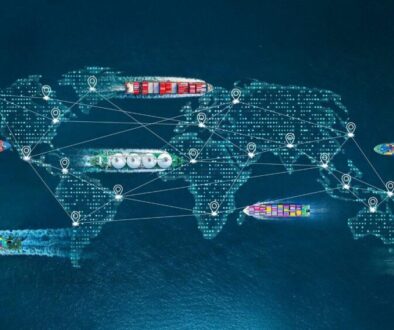The impact of the novel coronavirus on the global economy is growing and continues to shock the markets in unprecedented ways. On April 20, we have seen US crude oil prices drop to below zero for the first time in 150 years. With COVID-19 continuing to spread across the globe, what does this mean for GCC economies and banks?
S&P Global Ratings acknowledges a high degree of uncertainty about the rate of spread and peak of the COVID-19 outbreak. Some government authorities estimate the pandemic will peak about midyear, and we are using this assumption in assessing the economic and credit implications. As the situation evolves, we will update our assumptions and estimates accordingly.
It comes as no surprise that the COVID-19 pandemic will halt the growth of GCC Islamic and conventional banks this year as they focus on preserving asset quality rather than business expansion. Although growth rates in 2019 were almost the same as 2018, GCC conventional banks saw faster increases than Islamic banks. We project average real GDP growth for the six GCC countries will reduce significantly in 2020 compared with 2019, due to governments’ measures to contain COVID-19 spread. This will result in fewer growth opportunities for banks. We also expect banks to focus more on asset-quality indicator preservation than generating new business.
According to our forecasts, we assume that measures implemented by GCC governments to contain COVID-19 are relatively short lived. If this assumption does not materialize, the effect on their economies and banking systems would be stronger than we currently forecast. The delay of Expo 2020 for Dubai and potential cancelation of the pilgrimage season for Saudi Arabia, for example, may result in a stronger impact on the regional economies than we currently expect and further increase risks for banks.
We also expect cost of risk for both conventional and Islamic banks to rise. Lower economic growth and significant shocks to vital economic sectors such as real estate, hospitality, and consumption mean that GCC banks’ (both Islamic and conventional) asset-quality indicators will deteriorate in 2020. At year-end 2019, the average nonperforming financing (NPF) ratio reached 2.8 percent for Islamic banks compared with 3 percent for conventional banks. For 2020, we think that NPF ratios could easily double, and cost of risk could reach 1.5-2 percent of total loans.
Islamic banks, on the other hand, are somewhat more vulnerable than their conventional peers. This is because they tend to have higher exposure to the real estate sector due to the asset backing principle inherent to Islamic finance. They cannot charge late payment fees (unless these are donated to charities at the end of the exercise) meaning that clients tend to prioritize payments on conventional exposures versus Islamic. However, GCC governments’ requests for all banks not to charge late payment fees when they reschedule financings to affected companies partially mitigates this distinction.
We also anticipate that both Islamic and conventional GCC banks’ profitability will take a hit in 2020. This is because financing growth will remain limited, with banks focusing more on preserving their asset-quality indicators than generating new business amid the COVID-19 pandemic. We also believe intermediation margin will decline given the reduction in interest rates and the structure of GCC Islamic and conventional banks’ funding profiles (with a significant contribution of noninterest-bearing deposits).
When the dust settles and the full effect of current conditions on banks’ financials is visible, we think there could be a second wave of mergers and acquisitions, which will be more opportunistic and driven by economic rationale. We think a second wave of M&A might involve consolidation across different GCC countries or emirates in the UAE, for example. This could mean more aggressive moves by management than those seen in the past. The added hurdles of convincing boards and shareholders, who face the possibility of seeing their assets diluted or losing control, might be easier if they have to recapitalize their banks anyway.
In response to the COVID-19 pandemic, GCC governments have been swift. They have announced several measures to help corporates and retailers navigate the challenging environment. Banks are extending subsidized loans to affected clients to maintain employment and avoid production capacity destruction during what is expected to be a short-term event. To our knowledge, no regional governments have announced wide measures that would remove credit risk from banks’ balance sheets or inject additional capital. As a result, we think that risks will continue to build and ultimately weigh on banks’ financial profiles if the crisis worsens.



